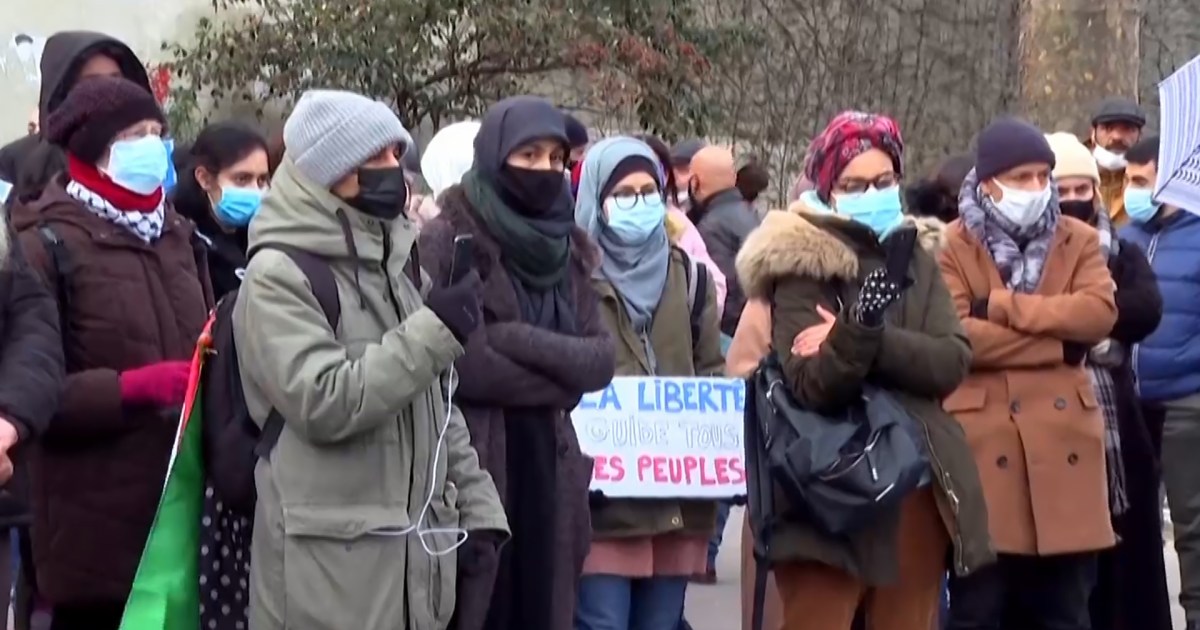A stormy wind is blowing on the rights and freedoms in France, and the country's Muslims find themselves in the whirlpool of this storm, as the political majority works - through the successive dissolution of associations and the enactment of laws year after year - to make members of the Muslim minority in France second-class citizens.
This is what was summed up by the French writer Rafik Shekat in an article for him - on the Orient XX1 website - under the title: “A stormy wind is blowing on the Muslims of France”, to highlight at the outset that any initiative emanating from Muslims in France is currently stigmatized as sectarian and contrary to freedom of expression. Or secularism, or as a manifestation of political Islam.
Based on this theory, the writer says that mosques, charities and other human rights associations, schools, publishing houses, sports clubs, and even just snack shops have been subjected to dissolution or closure, or they are the subject of implementing these measures currently.
The writer emphasized that there was no room for doubt about the motives of this "ongoing repression, which is to deter any critical discourse emanating from Muslims, and the declared and permanent desire to neutralize the public space," as he put it.
He explained that this is done without taking into account the heterogeneity of the targets, as well as through legal manipulation of some of the reasons for dissolving or closing these bodies.
The writer gave an example of this: the French Minister of the Interior, Gerald Darmanin, expressed his satisfaction with the freezing of the assets of about 200 associations “close to the separatist movement” (and by this the minister means those whom the minister accuses of refusing to integrate into French society) without bothering to explain what is meant by this “closeness.” .
The writer commented on this by saying that this is how Muslim voices are suppressed in the name of protecting freedom of expression, while secession laws are enacted and every Islam-related event is politicized in the name of combating “separatism” and “political Islam.”
The issue of freedom of expression occupies a central place in the rhetorical system of Islamophobia;
Muslims and those described as "accomplices" with them are portrayed as the main threat to this freedom, and are constantly accused of working to prevent any discussion of their religion. The term Islamophobia is even strongly rejected, and is seen by some parties as an attempt to impose censorship, always according to for the writer.
The writer explains that the permanent presence of the issue of Islam and Muslims in the French public debate, and the current presidential campaign, reveals the political marginalization of those who are presented as a threat to democratic pluralism, and the paradox - according to him - that Muslims are constantly talked about in the mainstream media, while at the same time repeating that They can never be talked about.
The writer presents some examples that reflect the new policy of the French state to clamp down on Muslims. He mentions that the Charter of Principles of Islam in France - a political text unparalleled in other religions, that mosque officials must sign under the risk of various administrative deterrent measures - states the following:
“The Muslims of France and the symbols of this faith are often the targets of hostilities. These acts are the work of an extremist minority that should not be confused with the state or the French people, therefore denouncing the alleged state racism and victimization is defamation, and at the same time fuels and fuels hatred. against Muslims and against France.
(Article 9)
The writer is surprised that this article makes Muslims responsible for the resentment against France and the racism they are exposed to at the same time.
He explains that the "Promoting Republican Principles" law - more commonly known as the "Anti-Secession Law" - also tends to impede the ability of Muslims to practice their social lives to the fullest.
He believes that this text has a fundamentally repressive goal (and this was recognized by the Council of State in its opinion issued on December 9, 2020), and it is a clear violation of the rights and freedoms of the Muslim minority in France - the most numerous in Europe -, especially those related to the formation of the Muslim minority in France. Associations and religious practice.
The writer concludes by warning that the abolition of a number of guarantees that somewhat protect Muslims from political abuse, forcing them to take a defensive position, and other authoritarian measures, generated anger and frustration for them, “and we know how this anger, which finds no spaces, can be exploited.” to be expressed and heard, and how it can be used for ominous purposes.”

